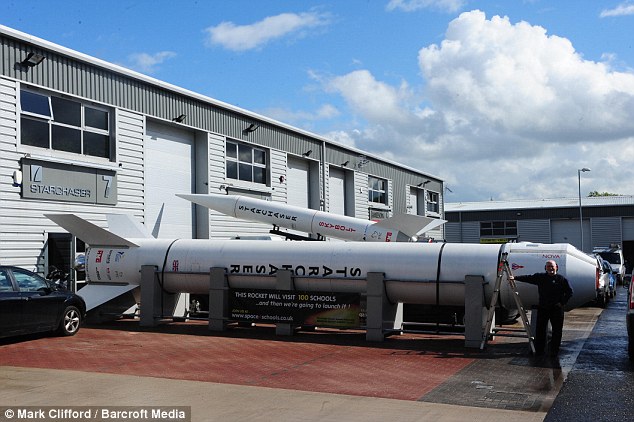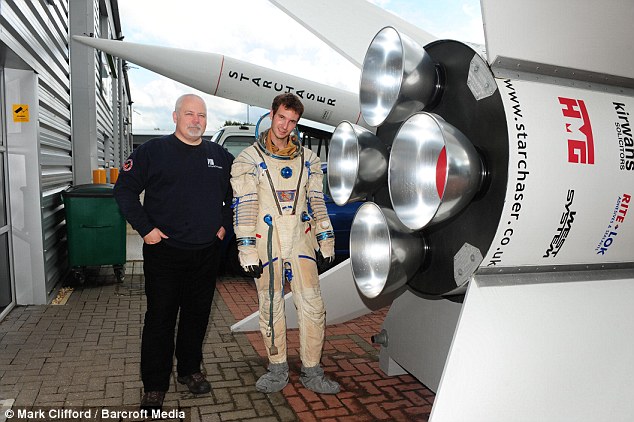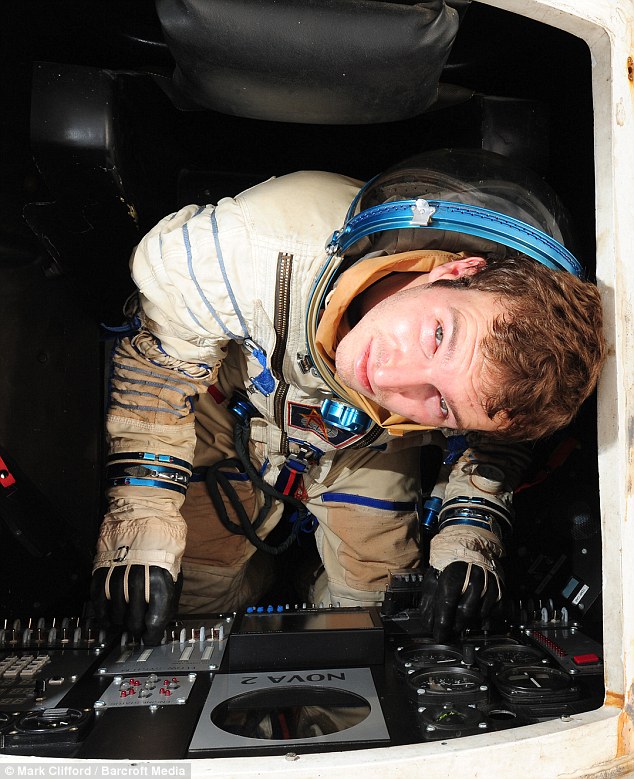Y
Yuri_Armstrong
Guest
With Bigelow Aerospace and other companies looking to start launching private stations and ships into sub-orbit and LEO, who will they be hiring to operate these craft?
...September 22, 2010
Tampa, Florida – Astronauts4Hire’s inaugural mission as a contracted flight researcher will be testing the world’s first beer to be certified for drinking in space. The beer, produced as a joint venture between Saber Astronautics Australia and the 4-Pines Brewing Company (under the name Vostok Pty Ltd), is a recipe designed for easy drinking in both in microgravity and on Earth. It is intended to meet anticipated demand from the nascent space tourism market.
An Astronauts4Hire flight member has been hired as the primary flight operator for the non-profit organization’s first employment opportunity. Sampling the beer during weightless parabolas, the flight researcher will record both qualitative data on beverage taste and drinkability and biometric data on body temperature, heart rate, and blood alcohol content.
“Astronauts4Hire is living up to its name,” says its President Brian Shiro. “This opportunity is an important milestone for us and illustrates how researchers can hire our members to conduct experiments under conditions of microgravity.”
The first test is scheduled for mid November 2010 onboard a series of parabolic flights operated by the ZERO-G Corporation. This will be the first of a series of flights qualifying the recipe for consumption in space, funded in part by sales of the beverage on Earth. Astronauts4Hire is honored to be taking a prime role in this research as the payload operator.
Astern2010 | February 21, 2010
My soon to be suborbital life-- aka-- Barnstorming the Suborbital Frontier.
Scientists Alan Stern and Dan Durda describe the coming era of suborbital spaceflight and how it will open up great possibilities for researchers, educators, and the public beginning later this year.
Filmed, edited, and produced by Jim Arthurs of Colorado Springs.
TheNASTARCenter | March 04, 2010
rockett":1i1wq0cl said:Well, for one thing, with the prospects of not having their own ship to drive for quite a while,
...Last updated at 12:59 PM on 26th September 2010
A team of British rocketeers plan to open the door to the stars by becoming the first private firm to put tourists in space.
Starchaser boss Steve Bennett and astronaut Matt Shrewbridge hope to loft the first paying passengers into the cosmos by 2015.
But before they can do that the Manchester-based firm, must carry out a series of trials.
The first ‘milestone’ in November will be testing their 20ft Launch Escape System (LES) – a rescue pod that separates from the rocket if the spacecraft fails.
...
Colossal: The 70ft Starchaser 4 rocket has already been built at the company's headquarters in Manchester
...
Proud: Starchaser boss Steve Bennett, who gave up his university job 14 years ago, with Matt and his rocket
...
Mission control to Manchester: Matt tests out the systems in the Launch Escape System pod
...‘One day someone is going to Mars and will be the first person to land on that planet. To me it would be the greatest thing if he or she went there on a Starchaser rocket or was inspired in the first place because our outreach team visited their school when they were younger.’
The biggest problem Mr Bennett faces is funding. He is currently £20,000 short of having enough for the 20ft LES rocket test flight.
After raising another £200,000 - which is expected to be next year - they will have the means to test fly the LES craft combined with Starchaser 4.
..11.11am Central Europe Daylight Time, 06 Oct 2010
by Kate Arkless Gray
...
InterPlanetary Ventures, the Human Synergy Project, and Interorbital Systems have joined forces to become SYNERGY MOON, the newest team to enter the Google Lunar X PRIZE race to the Moon. With working groups in 15 countries, the SYNERGY MOON team actively promotes international cooperation in space exploration and development. SYNERGY MOON will use a lunar-direct launch of an Interorbital Systems’ modular NEPTUNE rocket to carry a lunar lander and at least one rover to the surface of the Moon before the end of 2012. That rover will, at a minimum, travel 500 meters across the lunar surface, and transmit video, images, and data back to Earth. SYNERGY MOON will prove that an international, private-sector team can do what has never been done before: move private enterprise into space beyond Earth orbit.
...Oct 7th, 2010
by Nancy Atkinson
An artists illustration of a manned mission to Mars. Credit: NASA
What will it take to actually get humans to Mars? The best answer is probably money. The right amount of cold, hard cash will certainly solve a lot of problems and eliminate hurdles in sending a human mission to the Red Planet. But cash-strapped federal space agencies aren’t currently in the position to be able to direct a mission to another world – at least in the near term – and seemingly, a trip Mars is always 20-30 years off into the future. But how about a commercially funded effort?
...
07 October 2010
Astronauts4Hire has received worldwide attention since announcing its first job as the contracted flight researcher hired by Saber Astronautics Australia and the 4 Pines Brewery to test Vostok space beer in microgravity. To date, over 150 articles have appeared in the media ranging from blogs to magazines, newspapers, radio, and television. Here are some of the highlights:
Monday, October 11, 2010
Posted by Gregory Anderson at 9:42 AM
Interorbital Systems, an American NewSpace firm which is probably better known in Europe than it is in the U. S., is moving ahead with a program to offer tourists, and others, orbital spaceflights. Launched from the waters of the South Pacific kingdom of Tonga, the IOS spacecraft will carry up to six passengers plus a pilot. IOS is planning a two-man orbital flight sometime in 2011-12, with commercial flights to begin in the 2012-13 period.
Orbital Expedition flights will last about a week and cost $5 million per ticket. However, the company is offering a bargain deal-- the first ten tickets sold will go for $250,000 apiece. Two of the ten have already been snapped up, and, according to IOS CEO Randa Milliron, the company will begin a marketing effort to tell the public about the program soon. In an interesting comparison, Virgin Galactic is offering suborbital flights that will feature a few minutes of weightlessness in a fairly small cabin for $200,000 whereas a few people, for $50,ooo more, would get to experience true spaceflight-- days of weightlessness in a module with a large enough volume to allow real exploration of the possibilities of microgravity, dozens of sunrises and sunsets, and extended opportunities to observe the Earth and other celestial bodies from space-- on an early Orbital Expeditions flight.
Whether IOS, or, indeed, VG, can actually turn their plans into profitable reality is still open to question, but IOS is moving across a broad front, pursuing both manned and unmanned projects. It is even looking at the Moon-- in the context of the Google Lunar X-Prize competition, but also in flying a lunar sample return mission, and in establishing a substantial, private, manned lunar base in just a few years. If IOS succeeds across the board, it will have secured a place as one of the most important corporations in human history.
Tue, 10/12/2010 - 18:35 — White Label Space
Did you ever notice that astronauts are fantastic public speakers? There is a reason for that. Their nearly unique role as envoy of humankind makes astronauts the ideal medium to tell the public about the valuable and exciting work being done by the engineers and scientists in their space agencies.
Are you passionate about space?
Do you want to see the inner workings of a well-established team competing in the Google Lunar X PRIZE?
White Label Space is urgently seeking an enthusiastic individual to help us tell our story. Your core activities will be blogging and youtubing using raw content created within the team. We need to keep up a steady steam of output to keep the public engaged so you will also bring to bear your skills at twitter and facebook.
If you think you have the right stuff, send us an email: careers@whitelabelspace.com
We are accepting applications until the end of October. We are interested to see any similar things you've done in the past. This is a volunteer role but with chances to move into a paid position later. All ages, genders and experience levels are welcome.
Yuri_Armstrong":1c71xwnw said:With Bigelow Aerospace and other companies looking to start launching private stations and ships into sub-orbit and LEO, who will they be hiring to operate these craft?
DarkenedOne":3eclng6a said:Yuri_Armstrong":3eclng6a said:With Bigelow Aerospace and other companies looking to start launching private stations and ships into sub-orbit and LEO, who will they be hiring to operate these craft?
Vehicles like the Dragon and the CST-100 are completely automated, which makes sense because spaceflight is really not that complicated. This allows them to be tested without any danger to human life, and it allows them to be used as cargo carriers. Therefore they probably will not need pilots, even for when they carry humans.
The exception is vehicles like SpaceShipTwo, which is a fairly complex vehicle.
pathfinder_01":38ux42rk said:Vehicles like the Dragon and the CST-100 are completely automated, which makes sense because spaceflight is really not that complicated. This allows them to be tested without any danger to human life, and it allows them to be used as cargo carriers. Therefore they probably will not need pilots, even for when they carry humans.
The exception is vehicles like SpaceShipTwo, which is a fairly complex vehicle.
Not quite. Vehicles when caring cargo don't need a pilot (why pay and risk his life?). When caring crew, I expect a pilot (things can go wrong and computers are not good at dealing with the unexpected). Lost of cargo is not as bad as loss of life.
The Shuttle and Soyuz both have differing degrees of pilot control. In the case of the shuttle everything including docking and landing(and a few important mis. items) are usually done by crew. Launch and reentry is done by autopilot. For Soyuz the crew can take over in an emergency.
Even in the case of cargo, astronauts at the ISS can wave off a bad approach by progress (and I expect they probably can to any cargo carrier). In the case of Dragon and Cygnus the robot arm is required to berth them since they don’t technically dock. (Crewed Dragon will be capable of docking).


